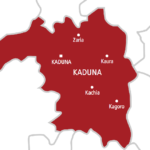
A major development capable of increasing the capacity of indigenous ship owners and other stakeholders in the maritime sector took root some days back at the NNPC Towers in Abuja. On Tuesday, stakeholders gathered to examine the Free On Board (FOB) trade term, which favours foreign ship owners in crude lifting and the Cost Insurance and Freight (CIF), which will enable indigenous ship owners to begin to lift Nigeria crude and ultimately boost indigenous capacity.
This forum was organised by Nigerian National Petroleum Corporation (NNPC) and the Nigerian Maritime Administration and Safety (NIMASA).
Minister of State for Petroleum Dr. Ibe Kachikwu, who declared the event open, welcomed the development, noting that the issue on this trade term is an aged long challenge that has lingered too far and charged participants to come out with resounding resolutions that would be of National benefit.
NIMASA Director-General Dr. Dakuku Peterside, who presented a paper titled “The Imperatives of Changing Nigeria’s Crude Oil Affreightment Trade Terms From FOB to CIF”, pointed out that the Changing landscape of Nigeria’s maritime sector viz-a-viz its security architecture, capacity and other determinants has necessitated the Change now than ever before.
According to him “Nigeria is one of the major exporters of oil and gas resource in the world, and she averages an output of 1.92 million barrels of crude oil per day so this volume generates huge freight for carriers. Regrettably, Indigenous shipping operators have insignificant share of the freight earned from the carriage of Nigeria’s crude compared to foreign counterparts”.
OPEC nations such as Iran, Indonesia, Algeria, Kuwait, Angola, Venezuela, UAE and Libya allow indigenous operators to participate actively in shipment of the crude oil. Thus, with the right policies in place Nigeria can build its own capacity and one of this is the change of terms of trade for Nigeria’s benefit.
The Group Managing Director of the NNPC, Dr. Maikanti Baru, stated that the corporation had no reason not to allow Nigerians lift crude that there were conditions which made NNPC opt for the FOB trade. He, however, noted that the NNPC also sees benefits in the CIF trade term but processes have to be followed which may include transition period before finally opting for the CIF trade term.
A former NIMASA chief, Temisan Omatseye pointed out that there is a lot of benefit in the CIF trade term as it would eliminate crude theft, create employment and ultimately compliment the diversification drive of the Federal Government.
In the same vein, experts observed that what is needed to make the great CIF initiative to grow the Nigerian shipping industry and the economy is the needed Government support, which is coming at the right time, when the country wants it most to diversify the economy. They agreed that the CIF trade term would be more beneficial to the country than the present FOB on which the crude lifting is currently based upon.
The CIF initiative is another of the great moves by NIMASA. This initiative is an adjunct of his blue economy campaign. With a coastline of about 853km and about 10,000km of Inland Waterways, 12 Nautical Miles of Territorial Waters, 200 Nautical Miles of Exclusive Economic Zone (EEZ), Nigeria should have no business with poverty.
This is supported by the fact that Nigeria imports over l50 million metric tons of non-oil cargo and approximate 1,500,000 units of containers a year. Total cargo throughput in 2015 stood at 195,969,200 metric tonnes showing a marginal increase of 0.8 per cent over the 2014 figure of 194,484,142 metric tonnes.
The current aggregate of the cargo throughput exceeds $15,000,000,000 a year through formal import orders.
It is for these reasons and more that Dr. Dakuku Peterside, the director-general of the Nigerian Maritime Administration and Safety Agency (NIMASA) is leading a campaign to explore the Oceans Economy to diversify the economy.
Peterside is further convinced of the goodness of the sector based on the facts that Nigeria has the biggest economy in Africa, is the most populous nation in Africa and has more port complexes than any country in Africa, among others.
At the moment, our gain from the blue economy is still minimal. To aid the sector, NIMASA has commenced 24 hour port operations towards ensuring access to business services at all time. It is improving on the development of critical infrastructure in the maritime sector, such as the construction of the largest floating dockyard in Africa. It is also establishing National Carriers and strengthening institutional frame work through ratification and domestication of IMO/ILO Conventions.
Peterside believes the Blue economy is the fastest growing sector in the world with enormous business potentials. He added that with the length of the nation’s coastline and the attendant volume of maritime trade, Nigeria is at an advantage of developing the blue economy and stakeholders have to actively participate to reap the benefits of the sector.
According to Dr. Peterside, “developing the blue economy is paramount across the globe now, and the public and private sector have to collaborate to sustainably harness the potentials of our maritime sector for the benefit of the Nigerian economy, especially as the Federal Government continues the economic diversification drive”.
Economies of Singapore, Ukraine and South Korea thrive on the activities of their maritime sector which suggest that with improved maintenance culture, adequate data management and articulated actions from stakeholders backed up with political will, Nigeria will be a leading light in the comity of maritime nations.
Dr. Peterside advocated synergy within stakeholders and said that the newly approved maritime security architecture will effectively reduce piracy and other related sea crimes.
He has an ally in Minister of Transportation Rotimi Amaechi, who said the President Muhammadu Buhari-led administration “is committed to ensuring that Nigeria becomes a maritime hub for the West and Central Africa sub region.”
Epele wrote this piece from Lagos.



